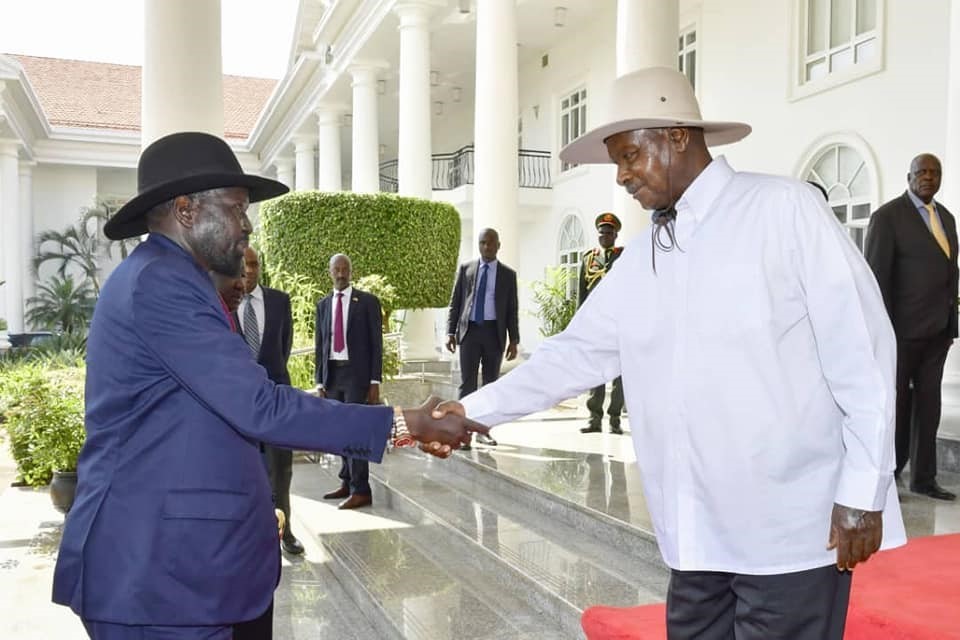South Sudan, the newest country in the East African Community (EAC) bloc, has been called upon by the East African Business Council (EABC) to stop charging visa entry fees on any EAC Partner State and embrace the use of National Identity cards as a traveling document across the region.
EABC CEO Dr. Peter Mutuku Mathuki said, “As it is now, South Sudan still charges visa fees to EAC citizens from EAC Partner States which do not have a bilateral agreement, with the country. We also urge South Sudan to join Kenya, Uganda and Rwanda to use National IDs as travel documents.”
The call to action came after EABC visited the Nimule-Elegu One-Stop Border Post (OSPB) on Wednesday. The regional business lobby group in collaboration with the Private Sector Foundation Uganda (PSFU) and the South Sudan Chamber of Commerce held a meeting with the Joint Border Management Committee deliberating on sustainable solutions to issues affecting the flow of goods and movement of persons at the border post.
South Sudan, ravaged by years of civil war, joined the regional bloc in 2016 as it targeted benefits accrued from the common market that partner states enjoy. However, it has been accused of not living to the spirit of the EAC treaty that calls on partner states to allow for free transfer of people and goods across the bloc.
Dr. Mathuki noted that only the Ugandan side of the OSBP is operational, and called for the full operationalization of the Nimule-Elegu OSBP, which is the main border post between South Sudan and Uganda and the busiest land border in South Sudan where most goods imported from Uganda are processed.
The OSBP has been recording an average of 160 trucks crossing the border daily carrying cereals, sugars and sugar confectionery, milling products, vegetable fats and oils, edible vegetables and beverages.
According to EABC, full operationalization of the OSBP will expedite the movement of goods and people, and reduce transport costs across national boundaries.
Both nations trade with each other frequently, and Uganda hosts millions of South Sudanese refugees, though it has been accused of also fuelling the conflict by permitting illegal trade. The COVID-19 pandemic has seen the value of official trade between Uganda and South Sudan decline considerably.
From January to September 2020, the value of trade between the two countries stood at $225.45 million while in January to September 2019, the value of trade stood at $243.3 million, a drop of $17.8 million.
EABC is also calling for the removal of the $50 COVID-19 testing fees, which cross border traders blame for increasing their cost of doing business. The business lobby also urged border officials to make information on the Simplified Trade Regime (STR) accessible to traders to enable them to benefit from the regional preferential treatment when importing or exporting goods within the region.
Speaking during the event, the traders also asked officials from the Ministry of East Africa Community in Uganda to engage the Ministry of Works and Transport, Uganda to come up with containment measures for the floods that continue to disrupt trade at the border.

